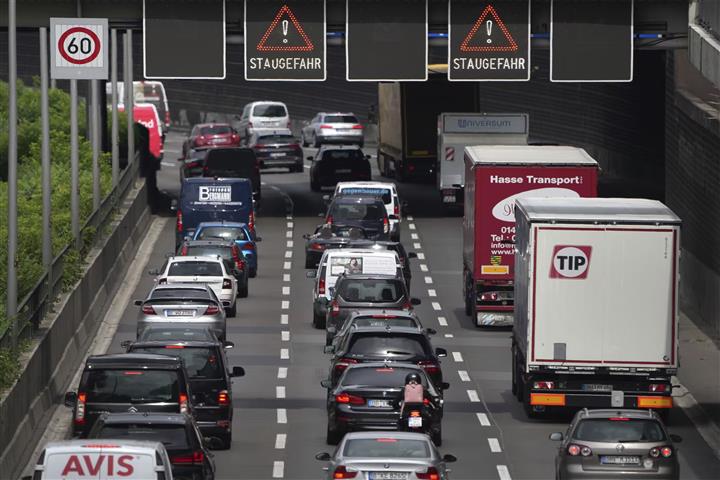 China’s NEV Exports to Benefit from Europe’s Ban on Gasoline-Powered Auto Sales
China’s NEV Exports to Benefit from Europe’s Ban on Gasoline-Powered Auto Sales(Yicai Global) Feb. 16 -- The European Parliament’s recent ban on the sale of carbon-emitting vehicles from 2035 will without doubt boost China’s new energy vehicle manufacturers, an expert said.
The European Union has been the biggest importer of China’s electric cars since 2021. Before that, from 2018 to 2020, Asia was China’s biggest importer. But 2021 saw a marked increase in exports to Europe, with 285,000 units for the year, while Asia took second place at 244,100 units.
Europe’s requirements for the endurance of pure electric cars are basically the same as those in China, but the intelligentization of these autos is significantly lower than that of Chinese NEVs, an industry analyst told Yicai Global. For similarly priced models, the intelligent cockpit, entertainment and personalized settings in Chinese brands are far better than those of other carmakers.
Some 46 of China’s 60 NEV manufacturers had international operations as of the first half last year, according to market data. And of the exporters, overseas revenue accounted for 23.6 percent of total revenue.
Auto parts maker Joyson Electronics had the biggest proportion of overseas sales at 76.3 percent, raking in CNY17.5 billion (USD2.6 billion). Internal combustion engine manufacturer Loncin Motor came second with 69.8 percent. Battery makers and raw material suppliers, such as Sunwoda, EVE Energy and Ganfeng Lithium, also did well in foreign markets.
EV battery giant Contemporary Amperex Technology bagged CNY22.2 billion (USD3.2 billion) from overseas sales in the first half last year, accounting for 19.7 percent of total revenue. And since then it has signed deals with several companies in the US and Hungary, greatly expanding its footprint abroad.
By comparison, Chinese automakers earn relatively little of their income from exports. Great Wall Motor’s overseas revenue accounted for 14.9 percent of total revenue in the first half last year, while that of Changan Automobile was 11.6 percent and that of GAC Group was only 2.8 percent.
BYD is the biggest NEV exporter. It sold almost 56,000 autos abroad in 2022 and has sales networks in more than 40 countries and regions, including Japan, Germany, Australia and Brazil.
The Shenzhen-based company is building its first overseas plant in Thailand, which is expected to be ready in 2024 with an annual output of 150,000 units. The autos produced will be sold in Thailand as well as to neighboring countries.
In the future, as China’s big brands improve their overseas supply chains and reduce manufacturing costs, they may become more competitive, the analyst said.
Editors: Shi Yi, Kim Taylor